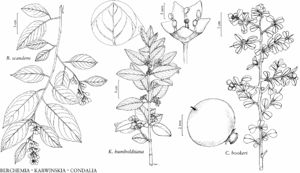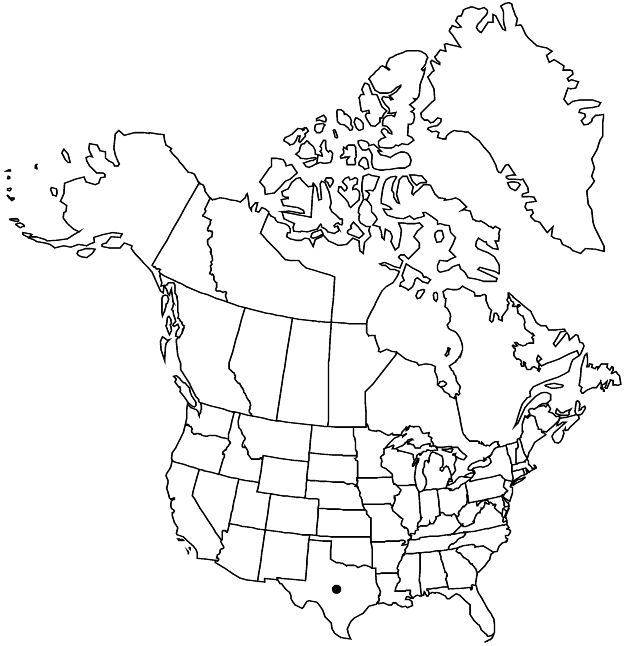Karwinskia humboldtiana
Abh. Math.-Phys. Cl. Königl. Bayer. Akad. Wiss. 1: 353. 1832.
Common names: Coyotillo
Selected by author to be illustrated
Basionym: Rhamnus humboldtiana Schultes Syst. Veg. 5: 295. 1819
Treatment appears in FNA Volume 12. Treatment on page 61.
Revision as of 19:22, 24 September 2019 by FNA>Volume Importer
Shrubs or small trees, 1.5–4(–6) m, glabrous or glabrate. Leaves: petiole 2–10 mm; blade oblong to elliptic-oblong, or elliptic-ovate, (1.5–)3–7(–8) cm, base rounded or truncate to acute, margins entire or weakly crenate (teeth at vein tips), apex rounded or truncate to acute, surfaces glabrous or abaxial surface sparsely puberulent along veins. Inflorescences 1–3-flowered. Drupes black, globose, 9–13 mm.
Phenology: Flowering (Mar–)Apr–Oct.
Habitat: Limestone ridges and hillsides, roadsides, juniper woodlands, brushlands, mesquite woodlands, sandy clay, sandy loam, deep sand.
Elevation: 10–600(–700) m.
Discussion
Selected References
None.
Lower Taxa
None.
... more about "Karwinskia humboldtiana"

